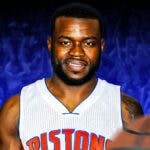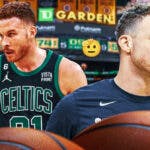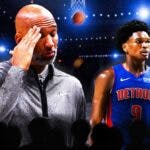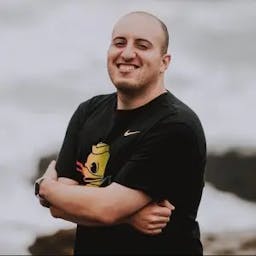The Detroit Pistons have had their share of remarkable floor generals in their long history. These are the creme of the crop at the point guard position.
5. Lindsey Hunter
Hunter enjoyed two lengthy stints with the Pistons — the first spanning from 1993-2000 and the second to close out his career from 2003-08.
While he wasn't a perennial starter, Hunter ranks sixth in franchise history in games played (703), third in 3-pointers (793), fourth in steals (896) and 10th in assists (2,038).
His per-game stats of 9.0 points, 2.9 assists and 1.3 steals for the franchise are nothing to marvel at, but his consistency as a quality backup is worthy of praise. Hunter was a three-and-D point guard that played a vital part in the Pistons' 2004 title, giving sound minutes behind Chauncey Billups and helping the second unit with his tenacity and timely shot-making.
4. Kevin Porter
Porter didn't spend long with the Pistons, but his brief spell was nothing short of brilliant.
His best season came in 1978-79 when he scored a career-high 15.4 points and dimed out a league-high 13.4 assists per game. The next-best assist leader was John Lucas at 9.3 per game.
Porter had led the league in assists (8.0 per game) with the Washington Bullets but was traded to the Pistons in 1975 after the Bullets shocking loss to the Golden State Warriors in the NBA Finals.
Porter averaged 11.9 points, 10.1 assists and 1.5 steals per game for the Pistons, helping them reach the playoffs in 1977.
3. Chauncey Billups
Perhaps the most memorable point guard of the last 20 years, Mr. Big Shot turned his career around in Detroit after being drafted as a standstill shooting threat.
Then-coach Larry Brown believed in Billups' playmaking ability as well as his size and strength playing a favorable matchup at the point guard position. That translated into averages of 16.5 points, 6.2 assists, and 1.0 steals per game throughout his seven seasons with the franchise.
His Pistons stunned a loaded Los Angeles Lakers team in the NBA Finals, coasting to a gentleman's sweep (4-1) in the series.
Following his strong six years in The Motor City (2002-08) in which he led the Pistons to six straight Eastern Conference Finals, Billups returned in 2013-14 as one final stint in Detroit before hanging up his jersey for good.
2. Dave Bing
Bing preceded any type of glory the franchise had. He was a stud before Bob Lanier, before the popular Bad Boys, and before the defensive-minded Pistons that won a title in 2004 and were repeat customers in the Eastern Conference Finals for six straight years.
Averages of 20.0 points, 4.5 rebounds and 4.1 assists per game in his rookie year, enough to warrant 1966-67 Rookie of the Year honors. The next season, he was named to the All-NBA First Team and got the All-Star nod, later finishing fourth in MVP voting and leading the league in total points.
Bing made six All-Star Games and receive three All-NBA nods in his nine years with Detroit. He averaged 22.6 points, 6.4 assists, 4.2 rebounds, and 1.4 steals per game. He's a Hall of Famer named to the NBA’s 50 Greatest list for the league’s 50th anniversary in 1996.
However, the only area where he fell short is winning, as the Pistons only made the postseason three times in his nine seasons with the team, all first-round exits.
1. Isiah Thomas
There isn't a list of Pistons' all-time best without Isiah Thomas in it. The Chicago native was the No. 2 overall pick in the 1981 NBA Draft and he went onto get 12 All-Star nods in 13 years.
Averages of 19.2 points, 9.3 assists and 1.9 steals per game made him one of the elite points guards in the game, perhaps the best of his decade if it weren't for Magic Johnson. He was a two-time All-Star MVP and a five-time All-NBA selection. He leads the Pistons in scoring (18.822 points), assists (9.061), steals (1.861), minutes (35,516), field goals made (7,194) and free throws made (4,036).
Thomas was savvy, gritty, and a known trash-talker, injecting a Pistons team with some much-needed character and leadership.
Zeke played his entire 13-year NBA career with the Pistons, spearheading the Bad Boys team that won back-to-back championships in 1989 and 1990, for which he was named Finals MVP.
His most famous moment came in Game 6 of the 1988 NBA Finals against the Los Angeles Lakers, as Thomas scored 25 points in the third quarter while playing on a badly-injured ankle. He scorched the Lakers for 43 points, but the Pistons lost by a point and would go on to lose Game 7.




